Post By
Saumya Madushani



Reviewed By
Jo S., Faheem H., and Marc T.
Post By
Saumya Madushani
Reviewed By



Jo S., Faheem H., and Marc T.
Do you like to know the Top 10 Reasons Why We Should Celebrate Martin Luther King Jr. Day and the Top 10 Facts You Didn’t Know About Martin Luther King Jr? Accordingly, Martin Luther King Jr was an iconic figure in American history who dedicated his life to pursuing equality and justice. With that, the World’s #1 Source of Research-Based Content, The Daily Top 10, will explore the Top 10 Most Important Life Events of Martin Luther King Jr.
His profound impact on the civil rights movement reverberates today, inspiring generations and challenging societal norms. Throughout his journey, he experienced significant moments that propelled him from a local preacher to a national symbol of hope and change the life of Martin Luther King Jr. stands as a testament to the power of perseverance, courage, and unwavering dedication to the pursuit of justice. His journey was marked by transformative events that challenged the status quo, reshaped the national dialogue, and sparked a nationwide movement.
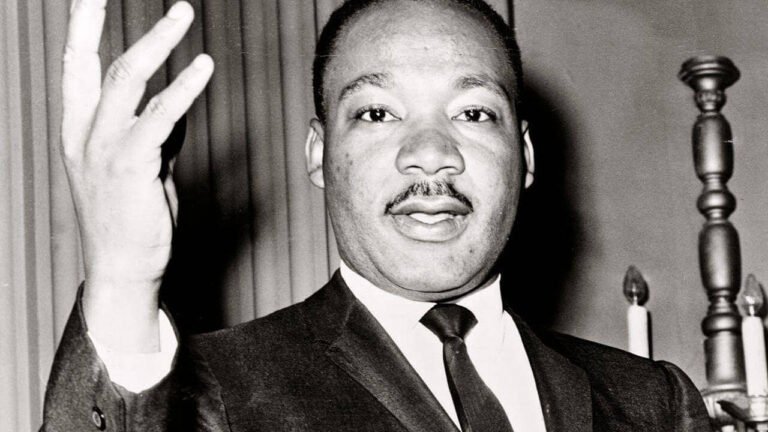
These defining moments in Dr. Martin Luther King Jr’s life serve as signposts along the path to progress, encapsulating the struggles, triumphs, and sacrifices accompanying his tireless efforts for civil rights. So, in this article, we will look at the Top 10 Most Important Life Events of Martin Luther King Jr.
What is the Most Important Life Event of Martin Luther King Jr?

You may like to read the Top 10 Most Shocking Political Assassinations of All Time. Similarly, Martin Luther King Jr. is an iconic figure in civil rights, leading an extraordinary life that continues to inspire and resonate with people worldwide. While he was involved in numerous significant life events, it is challenging to pinpoint a single event as the most important in his remarkable journey. His impact spanned far beyond any singular moment, as his legacy is built upon a foundation of unwavering commitment, courageous actions, and the power of his words.
From his steadfast commitment to nonviolent activism to his captivating oratory skills that moved hearts and minds, each aspect of his journey played a vital role in shaping the civil rights movement. So, let’s look at the Most Important Life Event of Martin Luther King Jr, after checking all the other events in our list.
10
Education and Spiritual Awakening
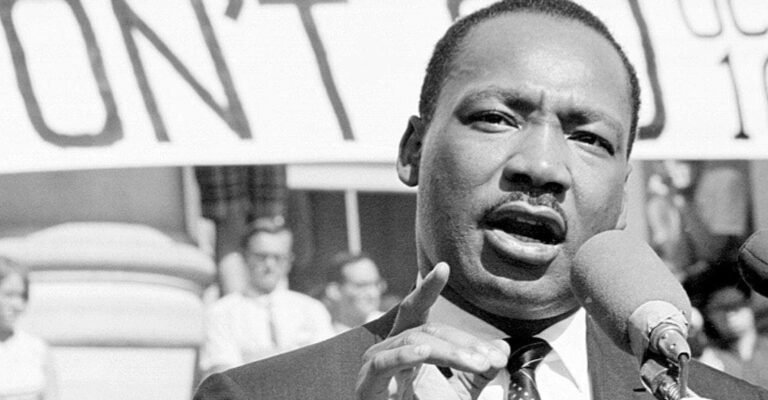
Martin Luther King Jr.’s education and spiritual awakening significantly shaped his character and guided his life’s work. As a young man, King embarked on a journey of intellectual growth, attending Morehouse College, Crozer Theological Seminary, and Boston University. His educational experiences exposed him to diverse perspectives, philosophical ideas, and principles of nonviolence, which would become central to his approach to advocating for civil rights.
As stated in Stanford Institute University, King delved into the works of prominent theologians, philosophers, and social activists, immersing himself in the teachings of Mahatma Gandhi, Henry David Thoreau, and Reinhold Niebuhr. His education and spiritual awakening were not merely personal experiences but transformative catalysts that propelled him to become a beacon of hope for millions.
9
Chicago Open Housing Movement

The Chicago Open Housing Movement stands as a testament to Martin Luther King Jr.’s unwavering commitment to tackling racial segregation and inequality beyond the boundaries of the American South. In the mid-1960s, he turned his attention to the northern cities, particularly Chicago, where he sought to address the pervasive discrimination faced by African Americans in housing and employment.
According to National Low-Income Housing Coalition, his involvement in the Chicago Open Housing Movement brought national attention to the issue, amplifying the voices of marginalized communities and forcing the public and policymakers to confront the deep-rooted racial disparities that persisted in the North. His presence and leadership helped galvanize support and mobilize individuals from various backgrounds, including local activists, community organizations, and religious groups, to join the cause for housing equality.
8
Poor People's Campaign

Martin Luther King Jr initiated the Poor People’s Campaign for his unwavering commitment to economic justice and the fight against poverty. The campaign aimed to address the interconnected issues of poverty, inequality, and systemic injustice that plagued marginalized communities across the United States. The Poor People’s Campaign focused on uniting individuals from diverse backgrounds, transcending racial and ethnic boundaries, to amplify the voices of those silenced by poverty and economic oppression.
As mentioned in Poor People Campaign Org, he envisioned a coalition of individuals from different socioeconomic backgrounds, joining forces to demand living wages, affordable housing, access to quality healthcare, and equitable distribution of resources. The campaign involved massive protests, marches, and demonstrations to draw attention to the urgent need for economic reforms. Tragically, his assassination in April 1968 cut short his direct involvement in the campaign. However, his vision and legacy lived on as the Poor People’s Campaign continued under the leadership of other civil rights activists.
7
Birth and Childhood

Martin Luther King Jr.’s birth and childhood profoundly impacted his development as a leader and a champion of civil rights. He was born on January 15, 1929, in Atlanta, Georgia. King grew up in a middle-class African American family. His early experiences and upbringing laid the foundation for his future endeavors and significantly shaped his values, beliefs, and a sense of purpose.
As stated in Spark Notes, he was exposed to equality, justice, and respect for all individuals from a young age. His parents, Reverend Martin Luther King Sr. and Alberta Williams King instilled in him a strong sense of self-worth, emphasizing the importance of education, faith, and community engagement. They taught him to stand up against discrimination and injustice, planting the seeds of activism that would blossom.
6
Montgomery Bus Boycott
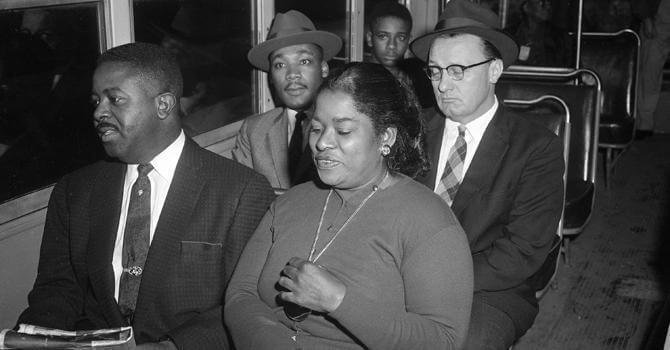
The Montgomery Bus Boycott, a pivotal event in the civil rights movement, showcased Martin Luther King Jr.’s transformative leadership and unwavering commitment to nonviolent resistance. The arrest of Rosa Parks sparked this for refusing to give up her seat to a white passenger. The boycott began on December 5, 1955, and lasted over a year. It became a powerful demonstration of the collective power of African Americans and their determination to challenge racial segregation.
According to History Channel, Montgomery Bus Boycott marked a turning point in the fight against segregation and propelled Martin Luther King Jr. to the forefront of the civil rights movement. It demonstrated the power of collective action, nonviolent resistance, and the capacity of individuals to effect meaningful change. His leadership during the boycott showcased his ability to mobilize communities, galvanize support, and advocate for justice in the face of formidable opposition.
5
Southern Christian Leadership Conference (SCLC)
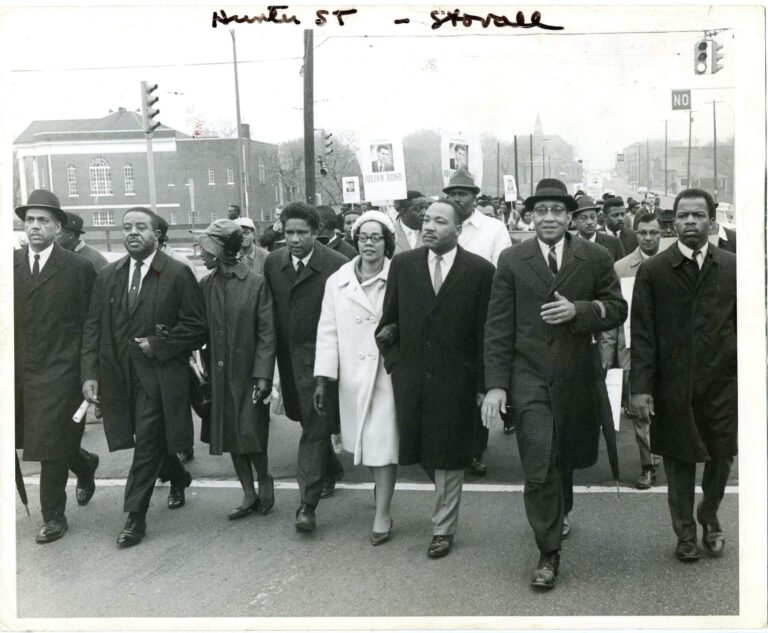
The Southern Christian Leadership Conference (SCLC) was founded by Martin Luther King Jr. and other prominent civil rights leaders in 1957. It emerged as a powerful force in the fight against racial discrimination and injustice. The SCLC represented a strategic and organized effort to address civil rights issues through nonviolent means and direct action.
As mentioned in the National Park Service, one of the most notable accomplishments of the SCLC was its pivotal role in organizing the historic March on Washington for Jobs and Freedom in 1963. This momentous event brought together hundreds of thousands of individuals from diverse backgrounds to advocate for civil rights and economic equality. The impact of the SCLC extended far beyond its immediate accomplishments. It set a powerful example of leadership, resilience, and determination in adversity.
4
Selma to Montgomery Marches
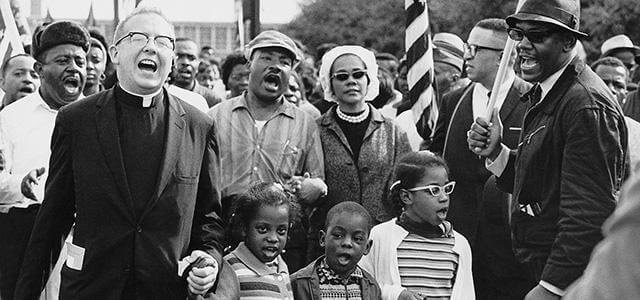
The Selma to Montgomery Marches, led by Martin Luther King Jr. and other civil rights activists in 1965, was a defining moment in the struggle for voting rights and equality. The courage, determination, and nonviolent resistance during these marches brought national attention to the urgent need for voting rights reform. The Selma to Montgomery Marches symbolize the power of peaceful resistance, the courage to stand up against injustice, and the unwavering commitment to equality and voting rights.
According to National Archives, the first of the three marches, “Bloody Sunday,” occurred on March 7, 1965. Peaceful marchers, including men, women, and even children, were brutally attacked by state troopers as they attempted to cross the Edmund Pettus Bridge in Selma. The violent confrontation shocked the nation and became a catalyst for change. The Selma to Montgomery Marches captured the nation’s attention and drew international support and media coverage.
3
March on Washington and "I Have a Dream" Speech
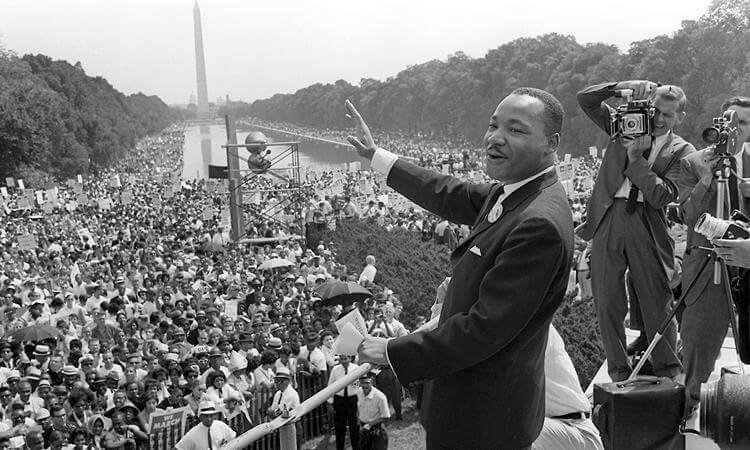
The March on Washington for Jobs and Freedom, held on August 28, 1963, stands as one of the most iconic events in American history and a defining moment in the civil rights movement. This march brought together over 200,000 individuals from diverse backgrounds to advocate for racial equality, economic justice, and civil rights reform. His impassioned words touched the hearts and minds of millions, transcending racial and social barriers and sparking a renewed sense of hope and determination in the fight against racism and discrimination.
As stated in NPR, the “I Have a Dream” speech eloquently articulated his vision of a future where individuals would not be judged by the color of their skin but by the content of their character. It called for ending racial segregation, systemic injustice, and economic inequality. His words resonated deeply with people from all walks of life, uniting them in pursuing a more just and inclusive society. The March on Washington and Martin Luther King’s “I Have a Dream” speech profoundly impacted the civil rights movement and the nation.
2
Nobel Peace Prize
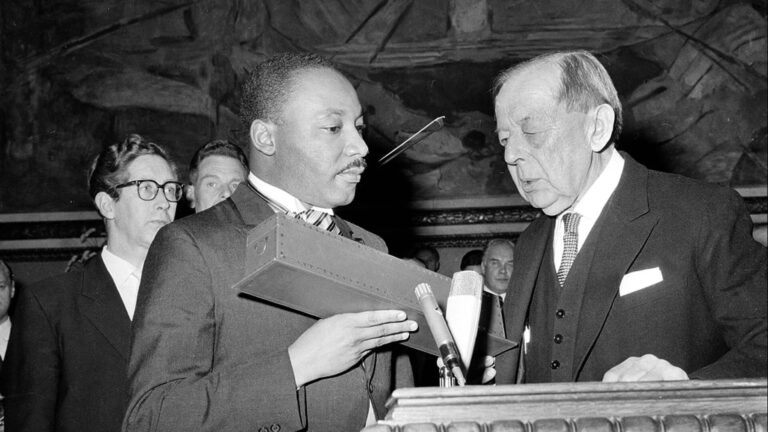
Awarding the Nobel Peace Prize to Martin Luther King Jr. in 1964 was a significant recognition of his tireless efforts in advocating for civil rights, racial equality, and social justice. The Nobel Committee honored him for his nonviolent resistance against racial discrimination and unwavering commitment to peace and equality. Martin Luther King’s leadership in the civil rights movement and tireless work to challenge systemic racism and promote nonviolent activism captured the world’s attention.
As mentioned in Nobel Prize, the Nobel Peace Prize validated his transformative impact on society. It symbolized the recognition of his courageous struggle to combat racial inequality and his dedication to advancing the cause of justice. The award honored his achievements and acknowledged the collective efforts of countless activists who fought alongside him to pursue civil rights. The Nobel Peace Prize bestowed upon Martin Luther King Jr. remains a testament to his enduring legacy and significant contributions to advancing human rights.
1
Assassination and Legacy
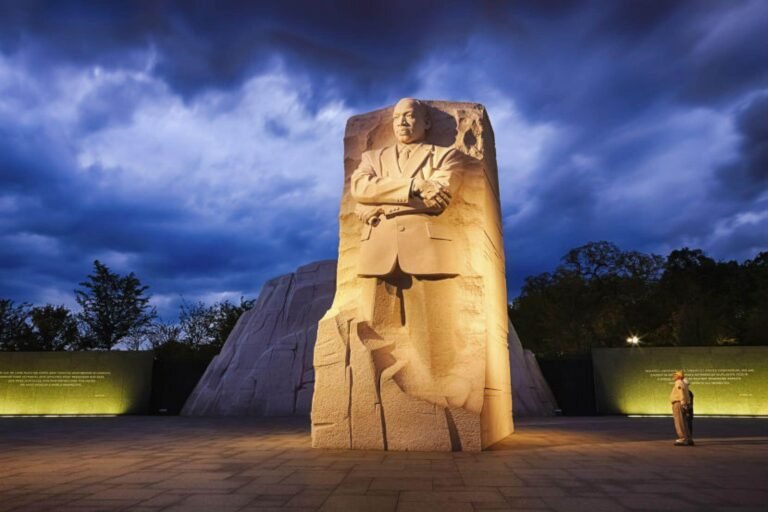
The assassination of Martin Luther King Jr. on April 4, 1968, sent shockwaves worldwide and marked a tragic end to the life of a visionary leader. His untimely death devastated the civil rights movement and those who believed in his message of equality, justice, and nonviolence. Despite his untimely demise, Martin Luther King Jr.’s legacy endured and continues to inspire generations.
According to Brooking Institution, Martin Luther King’s assassination occurred in Memphis, Tennessee, where he had traveled to support the sanitation workers’ strike. The news of his death sparked outrage, grief, and widespread protests nationwide. It was a stark reminder of the deep-seated racism and hatred that persisted in society and the immense challenges that still lay ahead in the fight for civil rights. So, we can say that the Assassination and Legacy of Martin Luther King is at the Top on our list of his most important life events.
What are the Most Important Life Events of Martin Luther King Jr.?

The life events of Martin Luther King Jr. were not just significant milestones in his journey, but they also shaped the course of history. From his early experiences of racial discrimination to his leadership in the civil rights movement, each event propelled him forward and solidified his commitment to justice and equality.
Here is the list of the Top 10 Most Important Life Events of Martin Luther King Jr. :
- Assassination and Legacy
- Nobel Peace Prize
- March on Washington and “I Have a Dream” Speech
- Selma to Montgomery Marches
- Southern Christian Leadership Conference (SCLC)
- Montgomery Bus Boycott
- Birth and Childhood
- Poor People’s Campaign
- Chicago Open Housing Movement
- Education and Spiritual Awakening
As we reflect on the most important life events of Martin Luther King Jr., let us honor his memory by continuing to strive for the ideals he championed. You should check out the Top 10 Most Famous Social Activists and Their Contributions.
In addition to this article, you may like to read from our website, the Top 10 Most Shocking Political Assassinations of All Time, and the Top 10 Reasons Why We Celebrate National Pancake Day. Moreover, you can subscribe to our Newsletter for more content like this and get your daily dose of knowledge with us.
PIN IT!


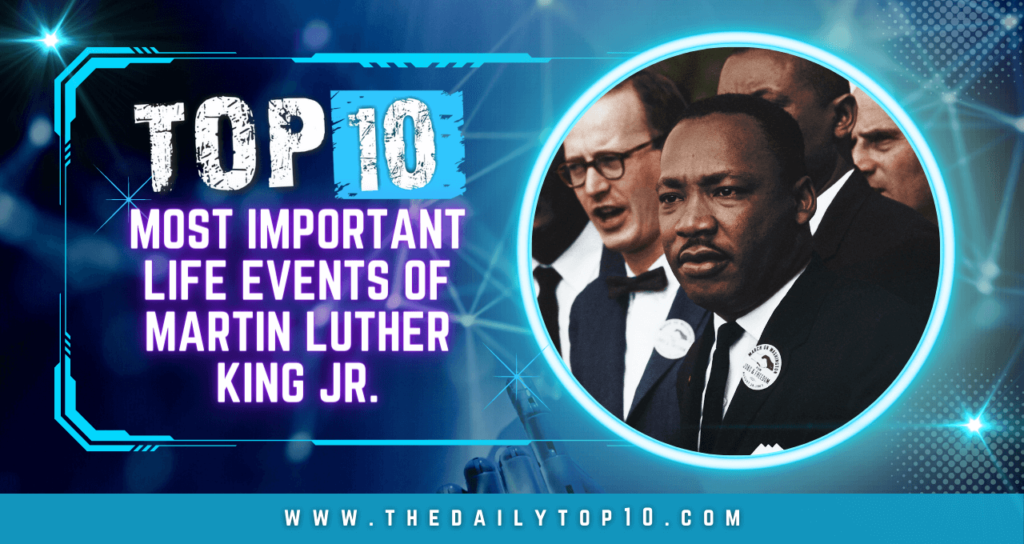
Top 10 Most Useful WordPress Plugins For Your Business (Updated)
Top 10 World’s Most Shocking Celebrity Scandals in January 2023
Top 10 Reasons Why We Celebrate National Puzzle Day
Top 10 Reasons Why We Celebrate Valentine’s Day
Top 10 World’s Biggest & Most Breaking News Stories in January 2023
Top 10 Best & Highest-Paying In-Demand Jobs in the USA (Updated)